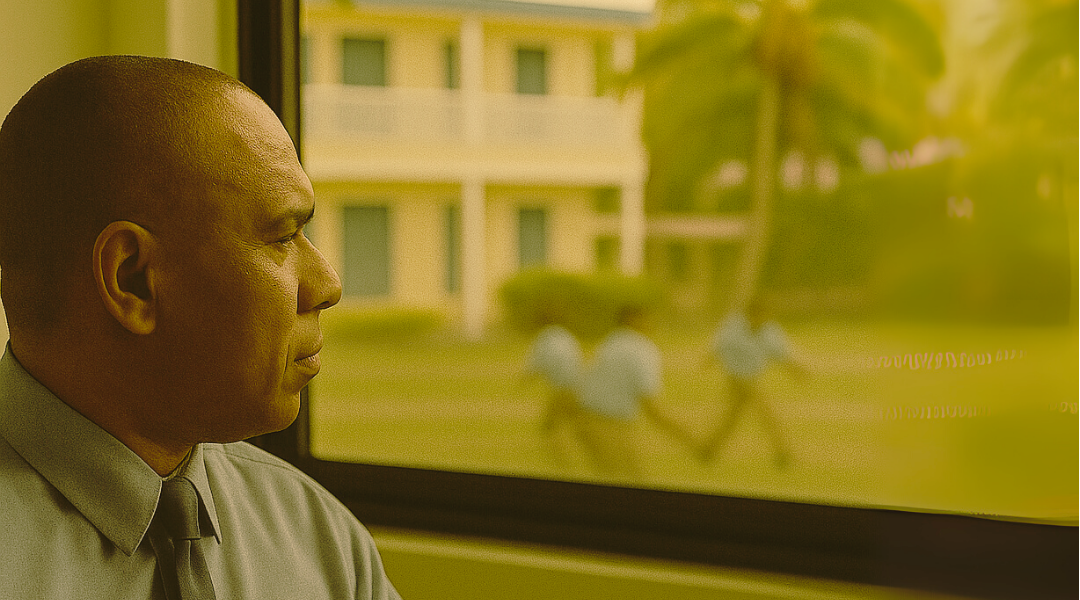Automation is already reshaping the global hospitality industry, and the Caribbean is not exempt. But while automation offers opportunity, it also brings urgency because the forces driving it aren’t always aligned with our values. Large hotel chains are under pressure to maximise shareholder returns, and for many, that means automating as much as possible, as fast as possible. Without clear regional strategy and local investment, this wave of transformation could entrench inequality rather than uplift communities.
Much of the conversation so far has centred on job losses; robots replacing cleaners, AI-powered kiosks replacing front desk staff. But it’s time to shift the narrative. Automation won’t just eliminate jobs. It will also create entirely new ones, hopefully better paid, more flexible, and focused on what humans do best: connect, create, and care.
The Caribbean Hotel and Tourism Association’s 2024 AI Transformation Guide highlights the opportunity for the region to not just adopt automation tools, but to lead in integrating them in ways that preserve the region’s culture and enhance guest experience. The Caribbean Tourism Organization has also called for a focus on resilience and workforce preparedness, including digital upskilling, as central pillars of sustainable tourism growth.
From Housekeeper to Guest Experience Host
Automation can already handle many repetitive tasks, like reservations, room cleaning and inventory management. But that doesn’t make the people who used to do those jobs redundant. It creates space for them to grow into new roles that add even more value.
We’re not talking about turning housekeepers into coders overnight. We’re saying that, as the nature of work shifts, organisations and governments must invest in helping all staff upskill, especially those in frontline roles who have the most direct contact with guests.
For example, with training and support, a housekeeper could become:
- A Guest Wellness Host, trained in hospitality and wellbeing.
- A Local Experience Curator, recommending local tours or events.
- A Service Quality Lead, monitoring tech-driven systems and flagging issues before guests complain.
These new roles won’t always require degrees but they will require confidence, training, and trust. We can’t expect workers to evolve if no one shows them how.
The Human Touch: More Valuable Than Ever
Automation handles efficiency. People handle nuance. This opens the door for:
- Cultural Liaisons, who help guests understand local customs and traditions.
- Personalisation Specialists, trained to interpret data and customise experiences.
- Experience Designers, who blend tech, local culture, and guest preferences into unforgettable moments.
Caribbean hospitality has always been rooted in warmth and welcome. These new roles simply formalise that strength into viable career paths. As highlighted by the CTO’s 2025 theme Caribbean Resilience: Crafting Tomorrow’s Tourism, our greatest asset remains our people.
Tech-Enhanced Service Roles
The tech won’t run itself. The industry will need:
- Automation Coordinators, trained to manage robotic systems and AI interfaces.
- AI Trainers, who feed data into systems so chatbots and virtual concierges reflect Caribbean realities, dialect, humour, history, and all.
- Data Analysts for Tourism, who track visitor trends and adjust services in real time.
These roles will require digital literacy but not necessarily advanced degrees. A worker who once served drinks poolside could be trained to run a smart bar with predictive ordering and real-time feedback integration.
The CHTA’s guide encourages member properties to prioritise digital literacy across departments, helping staff engage confidently with new systems and tools.
Creatives in the Spotlight
Digital content creation, virtual experiences, and cultural storytelling are in high demand. Hotels will need:
- Content Producers for social media, VR tours, and digital campaigns.
- Cultural Curators to ensure on-property and virtual experiences reflect authentic Caribbean history and flair.
- Influencer Relations Managers, to handle partnerships with local and global brand ambassadors.
This is where musicians, dancers, visual artists, and local storytellers can become integral to the hospitality economy, not just side entertainment, but central to the experience.
The CTO advocates for deeper integration of culture and technology, encouraging stakeholders to create “smart cultural tourism” offerings that respect heritage while leveraging modern tools.
Sustainability is a Job Creator
As hotels go greener and tourists demand more eco-conscious experiences, expect growth in:
- Sustainability Managers
- Waste-to-resource Coordinators
- Eco-tour Guides
Automation isn’t just about robots; it’s also about using smarter systems to reduce waste, energy, and carbon emissions, another area where the Caribbean can lead if it invests wisely.
What Needs to Happen Next?
To prepare for these shifts, we need:
- Training programmes tailored to these emerging roles, particularly those that focus on soft skills, emotional intelligence, and analytical thinking, areas where Caribbean service workers already excel.
- Recognition that shareholder priorities are not the region’s priorities. As one regional hospitality training expert shared with me, hotels owned by multinational corporations are under intense pressure to automate for shareholder profit, creating a new kind of exploitative system unless we actively resist it.
- Greater access to digital tools and broadband across the region to ensure equal opportunities.
- Cross-sector partnerships that help existing workers transition rather than exit the workforce, such as hotel chains working with vocational schools or tourism bodies.
- Incentives for small and mid-sized properties to adopt automation selectively, using technology to enhance, not replace, the human experience.
Her team is already implementing training that hones the region’s unique strengths and repositions them as superpowers. This means digging deep into the Caribbean’s emotional intelligence, cultural literacy, and service creativity and turning those into competitive advantages that AI can’t replicate.
Final Thought
The Caribbean must move from being reactive to proactive in this automation conversation. If we don’t define the new roles, someone else will and they won’t necessarily prioritise our people or our culture.
Automation isn’t a threat. It’s a prompt. A call to reimagine Caribbean hospitality through a new lens of creativity, technology, and care.


